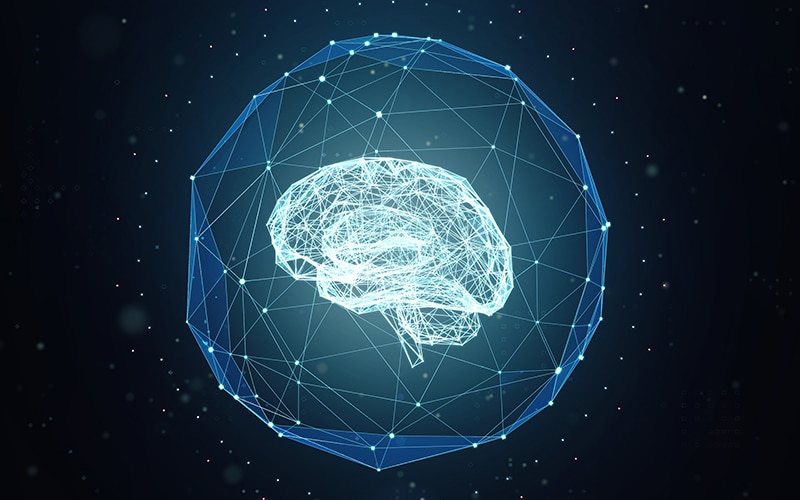As if being a contact center agent wasn’t already tough enough! They’re expected to be product experts, communication gurus, and multitasking maestros all rolled into one. But fear not, generative AI technology has arrived to save the day.
Table of contents
While some people may be trembling in their boots at the thought of machines and algorithms taking over these jobs, let’s be real here: they’re worried for all the wrong reasons. Generative AI is not here to steal jobs, it’s here to make agents’ lives easier and improve customer experiences.
So let’s dive in and explore the wonders of this game-changing technology and what it could mean for the future of contact centers.
The current agent experience
Contact center agents are on the front line of customer service, responsible for handling a wide range of customer inquiries, complaints, and requests. The current agent experience can be described as challenging and overwhelming. Agents are expected to work long hours, handle a large volume of calls, and provide accurate and timely information to customers. Agents often feel stressed, overworked, and underappreciated.
Without generative AI, agents rely on their own knowledge and training to handle customer inquiries. They often need to navigate multiple systems to access relevant information and have to manually input data into various applications, leading to a loss of productivity and increased errors. Additionally, the lack of automated guidance can lead to inconsistent responses and a lack of standardization across agents that are even working on the same team!
Early adopters of generative AI
Thankfully, early adopters of generative AI technology have begun to experience its benefits in the contact center. This technology is used to lighten the load of contact center agents and improve the customer experience overall.
One significant benefit of generative AI is that it can deliver better real-time coaching to agents in the form of guided assistance. This can include prompts to ask customers for specific information, provide product recommendations, or suggest additional resources that may be helpful. This real-time assistance allows agents to focus on the customer interaction without worrying about remembering all the necessary information, leading to more personalized interactions and increased customer satisfaction.
Generative AI can also reduce onboarding time for managers by automating the training process. The technology can quickly identify knowledge gaps in agents and provide targeted training to address these gaps. This targeted training can be delivered through interactive simulations that allow agents to practice real-life scenarios, leading to improved performance and reduced training time.
Another benefit of generative AI is that it can provide agents with instant access to relevant information, allowing them to resolve issues more quickly and accurately. The technology can analyze customer inquiries and provide agents with relevant information and recommendations based on previous interactions, customer history, and other relevant data. This leads to improved agent performance and increased customer satisfaction.
The future of contact center agents with generative AI
As generative AI technology continues to evolve and become more widely used, the future of contact center agents is likely to change significantly. In the future, agents will become more knowledgeable and empowered, leading to improved customer experiences and increased job satisfaction.

Firstly, with the use of generative AI technology, agents will have access to more personalized training and support, leading to improved performance and reduced stress. This will enable them to focus on delivering high-quality interactions, leading to improved customer satisfaction.
Secondly, the use of generative AI technology will allow agents to provide more comprehensive and accurate information to customers. The technology will analyze customer data and provide agents with relevant information and recommendations, leading to more effective problem-solving and reduced call times.
Thirdly, generative AI technology will enable agents to work more efficiently and productively. With the automation of repetitive tasks and the provision of real-time guidance, agents can work more quickly and accurately, leading to increased job satisfaction and improved overall performance.
Finally, the use of generative AI technology will enable contact centers to more effectively manage their workforce. By automating routine tasks and providing targeted training, contact centers will be able to improve the efficiency and productivity of their agents, leading to better business outcomes and increased profitability.
As generative AI technology continues to evolve, the role of contact center agents will also change. While the technology will automate routine tasks, it will also enable agents to focus on higher-value tasks that require empathy and creativity. Agents will be able to spend more time understanding customer needs and providing tailored solutions, leading to better customer experiences and increased customer loyalty.
The TL;DR
The bottom line is, despite all of the angst and anxiety surrounding its adoption, generative AI technology has the potential to revolutionize the life of contact center agents by reducing stress, improving performance, and increasing job satisfaction.

With the use of this technology, agents will have access to real-time guidance, personalized training, and more comprehensive information, enabling them to deliver higher-quality interactions to customers.
As the technology continues to evolve, the role of contact center agents will also evolve, leading to improved customer experiences and better business outcomes. Contact centers that invest in generative AI technology today will be well-positioned to reap the benefits of this technology in the years to come.








